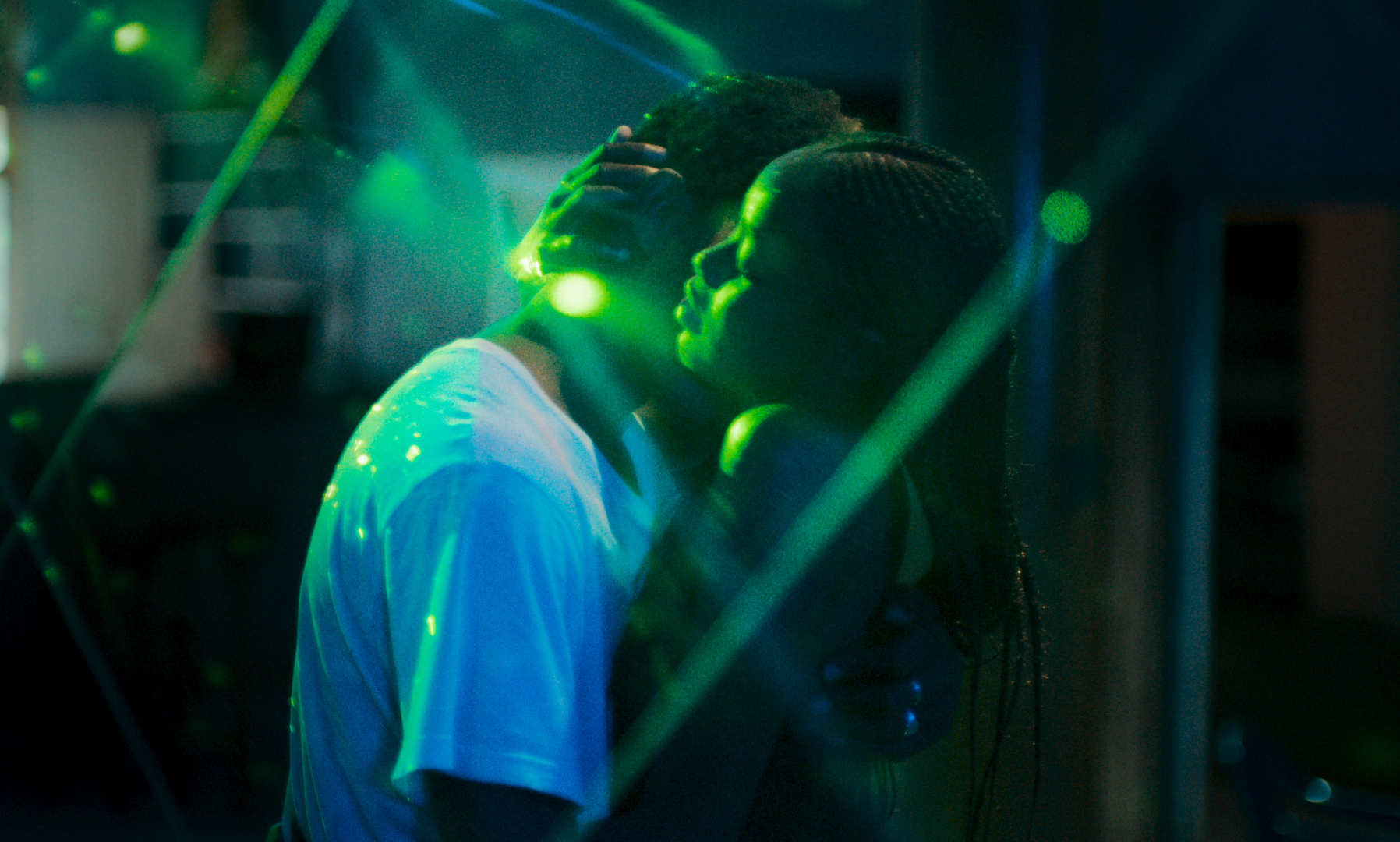In an early scene of Mati Diop’s Atlantics (2019), the camera stays fixed on the boys. The boys—that is, workers revealed to be boys—packed in the wagon of a truck, riding in the open air on the way back from a worksite to which they’ll never return. There’s Souleiman (Ibrahima Traoré), their emergent leader, lost in thought, as his crew jostles about and tries to get him to play along. This image of them is fuzzy, slowed down, as if already a memory, a warning that we’ll lose them. From another angle, we see the futuristic tower they’ve been building for the last four months. It pierces the air, gleaming, alien. We don’t know what’s inside, only that they’ve built it—and haven’t been paid for their labor, despite their efforts to demand what they’re due.
And then, by the time night falls on the coast of Dakar, as Souleiman’s lover, Ada (Mame Bineta Sanee), sneaks out of her bedroom window to meet him, they’re gone. It’s their disappearance, and subsequent return, that haunts the characters in Diop’s feature debut. It’s a love story and a coming-of-age tale that suddenly gives way to a zombie flick, though it feels almost inappropriate to use the term “zombie flick” to describe Atlantics, with its languorous, foreboding shots of the ocean for which it’s named, and its utter lack of camp. But maybe that’s the point. By flipping the conventions of the genre on its head, by aligning us with the zombies themselves, Diop forces us to consider whose voices have been erased from the record, whose humanity has been made one-dimensional.


